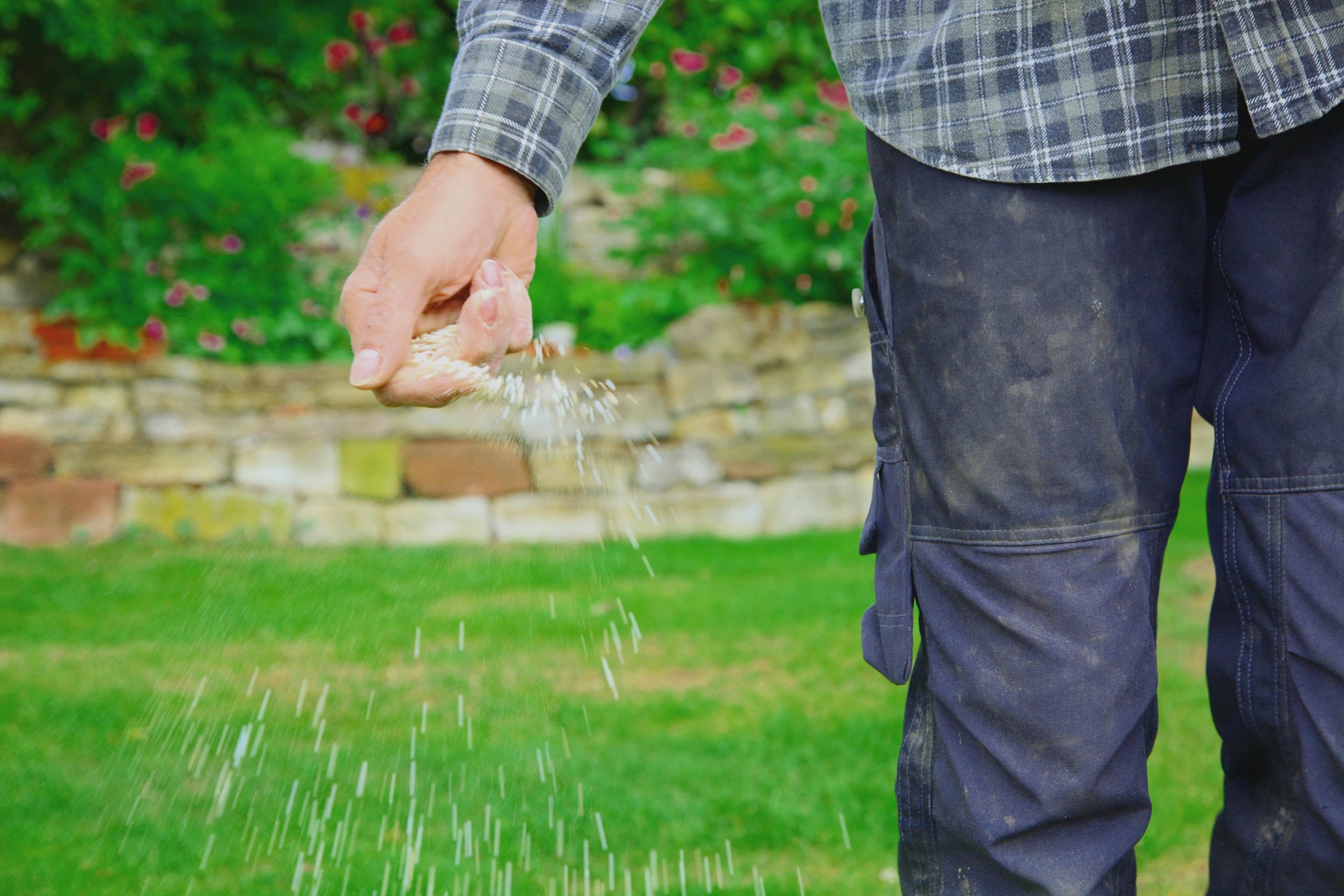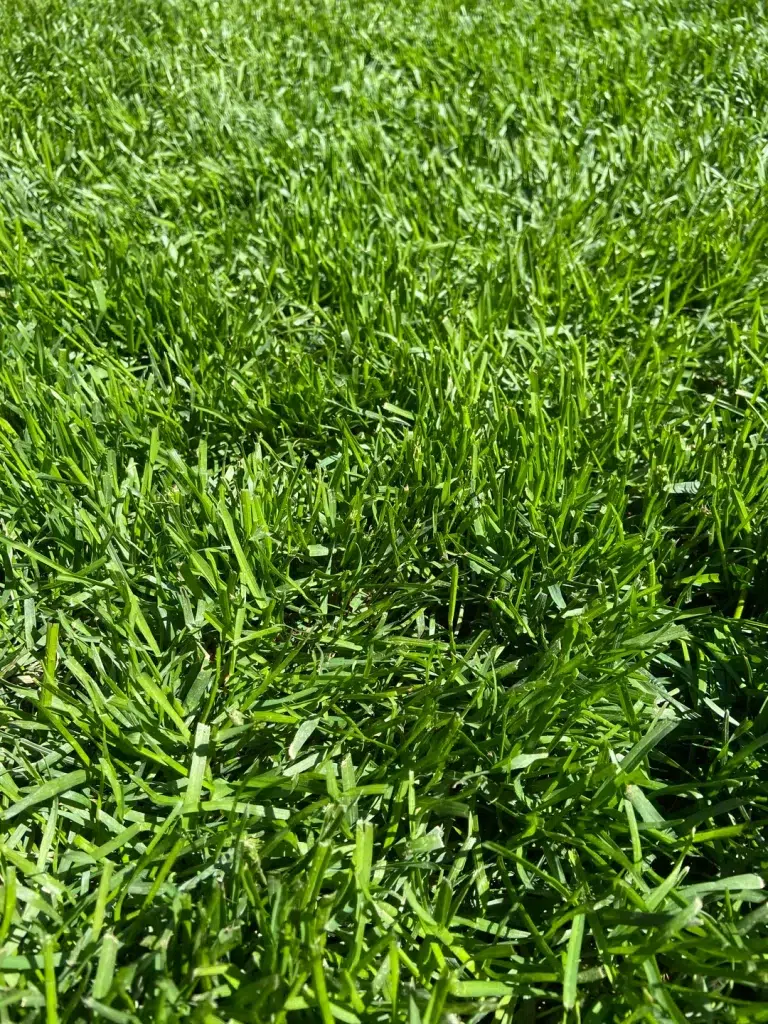In the heat of the summer, you want your lawn to look its best. It livens up your property and enhances curb appeal. The summer months can be rough on your grass, though, from increased foot traffic to depleted resources and nutrients. A great way to bolster or improve the health of your lawn is to apply summer lawn fertilizer to it. Creech Landscape understands the importance of a healthy lawn, and our team has put together benefits and advice on using fertilizer in the summer.
Prepares Grass for Colder Months
Summer is the season when your lawn is growing lush and strong, but it also means the cooler seasons are just around the corner. When late fall and then winter begin to set in, your grass typically goes dormant. Before that happens, it’s important for grass to have the necessary nutrients to store inside it.
Provides Nutrients
If you want your lawn to grow properly and thrive, the grass needs plenty of nutrients to do so. Sometimes the soil alone cannot provide an efficient amount of the necessary nutrients, which is where lawn fertilizer comes into play. There are numerous kinds of nutrients a lawn needs, but nitrogen, potassium, and phosphorus are the primary ones it needs.
Nitrogen
Nitrogen is vital for your grass in regard to internal development. It helps plants create chlorophyll for photosynthesis and build necessary proteins inside. While nitrogen can be obtained from the soil, it can become depleted over time from grass and other plants using it up. Fertilizer with nitrogen can provide the means for your lawn to continue producing the proper amount of protein and chlorophyll.
Potassium
This nutrient is important for the stability of your lawn. Potassium helps support cell division and photosynthesis and helps your lawn handle drought and other damaging stressors during the summer months. With the proper amount of potassium, your lawn can be prepared to withstand damage through summer and into the cooler months.
Phosphorous
This is one of the most important nutrients for your lawn because it is necessary for energy production. From the production of amino acids to respiration, it is intricately involved. It isn’t needed in large amounts, but having some in your fertilizer can be a game changer for your lawn’s growth.
Improves Disease and Insect Resistance
Issues like diseases and pests can significantly damage your grass and reduce its growth. If your lawn is already somewhat sparse, it may be prone to these factors and at risk of declining. The humidity of the summer can also promote the growth of fungi and fungal diseases in grass. While fertilizer doesn’t kill pests or treat diseases, it promotes healthy growth. When your grass grows thicker and healthier, it can better resist diseases and damaging pests, and it can prevent them from lingering on your lawn.
Weed Control
Weeds are a common issue year-round for your lawn, but the lack of enough nutrients in your lawn’s soil during summer droughts or rainstorms specifically can lead to the growth of them. An insufficient amount of nutrients can be taken by weeds and leeched away from your yard, eventually depleting its resources. Weeds will also overcrowd the grass and block off sunlight, further damaging it. With fertilizer, the encouraged growth of your grass allows for it to outgrow the weeds and keep them from growing, providing a great time to remove them.
Protects the Soil
Fertilizer not only enriches your plants, but it also enriches your soil. If your soil lacks nutrients, your grass and your plants will eventually die out, and the decrease in a proper root system can lead to unstable soil and the risk of erosion. With fertilizer, your lawn’s root system is strengthened through healthier growth, and deeper roots can help restabilize your soil.
Boosts Oxygen
Oxygen is vital to the environment and your local ecosystem, and your lawn helps to produce it. If your grass is on the decline, it may mean less oxygen is produced. Summer fertilizer can benefit oxygen production by encouraging better growth in your grass. With thicker grass, more carbon dioxide can be absorbed and leads to increased oxygen production. This can greatly improve the air quality around your home, which is healthier for you as much as it is for your plants.
When Should I Fertilize My Lawn?
Fertilizing your lawn at the right time is important, as you want to ensure your grass gets the most out of it. In the summer, it’s best to fertilize in the early morning. This allows for your lawn to absorb the nutrients throughout the day. You should also be sure to fertilize long before it rains, or after the soil has dried after a rainstorm, to avoid your fertilizer from being washed away from the soil and resulting in water pollution. Keeping in mind these factors can help your lawn efficiently absorb the fertilizer without losing any of the benefits.

What Fertilizer Should I Use?
The fertilizer you choose depends on what your yard needs during the season. With the risk of drought during the summer months, choosing a fertilizer that encourages better water retention is beneficial. You must be mindful of the amount of nitrogen in summer lawn fertilizer. While nitrogen is important to grass, too much of it in the summertime can produce a “burned” look on your lawn and further damage the stressed grass. Choosing a slow-release fertilizer can gently introduce the nutrients into the soil as water, heat, and soil microbes break down the fertilizer. Your grass type can also determine what fertilizer you need, as there are warm season and cool season grasses:
Cool Season Grasses
Grasses like Fescue and Kentucky Bluegrass thrive on nutrient rich fertilizers that boost their root development. It’s best to provide a fertilizer that will promote deeper root growth and resilience against the stress of the summer heat to stay vibrant through the cooler months.
Warm Season Grasses
Warm season grasses include Bermuda and Zoysia, and they require a proper amount of nitrogen and fertilizer that will promote their growth. When picking fertilizer, opt for nitrogen-rich varieties that will distribute nutrients steadily to keep your grass growing strong.
Strengthen Your Lawn with Creech Landscape
If you’re looking to have your lawn fertilized this summer, Creech Landscape is here to help. We offer high-quality lawn services, including proper summer lawn fertilizer that caters to your yard’s specific needs. Contact us today to get a quote or to schedule a service.









